A three-judge bench of the Supreme Court, in an order dated September 26, 2022, listed for hearing the Writ Petition (Civil) No. 230/2022 challenging the constitutionality of the Unlawful Activities (Prevention) Act, (“UAPA”) 1967. The petition, filed by the Foundation of Media Professionals, has been tagged with seven other matters related to the Tripura violence similarly challenging the validity of the Act. The petition’s purpose is to highlight the grave restrictions imposed by the government on any voice criticising the ‘ruling party’ or the ‘majoritarian sentiments’ due to the vague and arbitrary terms of the legislation along with an excessively invasive procedure.
It questions the validity of UAPA against the fundamental rights to equality, freedom of speech and expression and life. It states that by giving overwhelming powers to the executive to curtail any form of expression that dissents or opines against the government of the day, the Act violates Article 19(1)(a). Further, the Act does not require the presence of mens rea while deciding an unlawful activity or terrorist act, and gives the government wide-reaching and vague powers to detain individuals under the same. This constitutes a violation of Articles 14 and 21 due to its arbitrariness and unreasonable restrictions on personal liberty. It argues that the statute is dictatorial insofar that the central government, which is empowered to label an organization as a terrorist for an indefinite period, is also empowered to decide the application made by the concerned organization appealing against such a label. The institutional structure of the Act seems to give the State absolute power.
The SC has adjourned the first hearing. This explainer aims to illustrate the urgency of the matter by discussing the arguments set out in earlier petitions and the jurisprudence surrounding the UAPA.
Brief History
The UAPA has its origins in the Criminal Law Amendment Act, 1908, which defined ‘unlawful associations’ for the first time and gave the State the power to determine the same, thus curbing dissent against the Crown. Upon independence, the Indian government decided to retain the statute. In 1967, after the wars with Pakistan and China, the UAPA was enacted to give State wide reaching powers to notify unlawful associations along with penalising individuals for partaking in the unlawful activities. An unlawful activity was defined to be one that intends or supports the secession of India. The statute was amended in 2004 to insert a chapter on ‘terrorist activities’. After the 2008 Bombay attacks, amendments were made to allow for arrest and detention for 180 days on the basis of personal knowledge of any person informing the police regarding commitment of unlawful activities or any evidence that might prove the same, and to restrict anticipatory bail if there exists prima facie evidence against the accused. The 2019 amendment allows the State to categorize individuals, apart from organizations as was allowed earlier, as ‘terrorist’. The Act, in Chapter IV, defines ‘terrorist’ activities to include, inter alia, the use of explosive or inflammable substances, and any other means of whatever nature, thus giving extensive discretion to the State in identifying the same. The aim of the UAPA, as observed by the Apex Court, is to deal with terrorist activities that are committed with the intent to threaten the unity, integrity, security or sovereignty of India, or to strike terror in the hearts of people, or relate to the secession of the territory of India. The Supreme Court itself has held, a decade ago, that the UAPA applies to matters related to the defence of India. However, over the years, the UAPA has turned from an anti-terror law to an anti-dissent law.
Other Challenges
UAPA punishes terrorist activities, which were initially punishable under Terrorist and Disruptive Activities (Prevention) Act, 1987 (‘TADA’) and Prevention of Terrorism Act, 2002 (‘POTA’), which have been repealed. Both TADA and POTA were challenged on the ground that the Parliament lacks the legislative competence to enact the same. The courts dismissed the challenges stating that the statutes deal with issues of national defence. Although the UAPA has not been challenged on the ground that the Parliament lacks legislative competence, there have been several petitions questioning the constitutional validity of its provisions that have gradually become like the now repealed legislations.
The Supreme Court in 2011 read down Section 10 of the UAPA to hold that mere membership of an organization which has been designated as terrorist is not punishable. Increased use of the UAPA in recent years, especially after the Bhima Koregaon violence, has led to frequent challenges to the same. The death of Father Stan Swamy in police custody due to refusal of anticipatory bail under Section 43D (5), which he challenged as being violative of Articles 14 and 21, attracted national outcry.
In 2019, two petitions, Sajal Awasthi v. Union of India and Association for Protection of Civil Rights v. Union of India, were filed in the SC challenging the 2019 amendment as violative of the rights to equality, freedom of speech and life because an individual may be unilaterally designated as a terrorist by the State without any judicial scrutiny let alone a trial, thus infringing upon principles of natural justice. The petitions are awaiting a hearing in the SC.
The leading petition listed with the present case this week is Mukesh v. State of Tripura. It is related to the 2021 Tripura violence against mosques and Muslim-owned property by Hindu organizations protesting against violence perpetrated on the Hindu minority in Bangladesh. While the government denied the said vandalism, the petitioner lawyers released a report finding otherwise. They were slapped with charges under Section 2(1)(o) the UAPA for committing ‘unlawful activity’ constituting ‘breach of peace’ by provocation of religious enmity via posts on the internet regarding the violence. Subsequently, they challenged the charges as well as the validity of Section 2(1)(o) read with Section 13, and Section 43D (5) of the UAPA for having a ‘chilling effect’ on the freedom of speech and right to personal liberty. This is because the term ‘unlawful activity’ has an overwhelmingly wide ambit granting discretion to the executive and, if charged under it, it is almost impossible to secure bail.
Another significant challenge to the UAPA, which is yet to be listed for hearing, was filed in 2021 by a group of former civil service officials. The petition dealt with issues of lack of procedural safeguards for the rights of individuals being tried on the charges of being “terrorist” or carrying out “unlawful activity”, and the restrictions on grant of anticipatory bail. It points out that the executive has illegally appropriated the discretion to create distinction between individuals named as terrorists in the Fourth Schedule of the UAPA and those not named as such but sanctioned by the government to be tried in court under the Act. It states that the procedural safeguards available to the former with respect to challenging their label as terrorist is unavailable to the latter since they have not been labelled in the first place. It also prayed for adequate compensation for individuals incarcerated under the UAPA who are eventually acquitted.
Conclusion
According to the draft report titled “UAPA: Criminalising Dissent and State Terror” released by the People’s Union of Civil Liberties, the conviction rate under the UAPA between 2015 and 2020, on the basis of number of cases is 27.57%. However, it drops to 2.8% based on number of arrests made. Commentators have argued that the UAPA is a draconian legislation perpetrating torture and humiliation on the accused, more appropriately, political prisoners.
It is apparent from the above discussion that the UAPA has been challenged on both substantive and procedural aspects, largely pertaining to bail restrictions and the arbitrary mandate of the State to designate terrorists and unlawful activities without due process. It is yet to be seen what approach the SC takes this time – will it courageously undertake its judicial function and strike down the severe law, or will it again take a minimalist approach to only answer the narrow questions on facts and leave it to the legislature to deal with the overarching powers it has granted to the executive, as it did with TADA and POTA. The scope of the various definitions under the UAPA must be defined instead of directing the legislature to undertake the futile exercise of reviewing it. While the courts have interpreted Section 43D (5) to allow bail applications in cases wherein the State is unable to make a prima facie case against the accused comprising of elements of the offence, the constitutional validity of the same remains to be decided. The present case might turn out to be a watershed moment in the history of India’s anti-dissent laws, opening the floodgates for challenges to similar laws.
Ishika Garg is a third-year student at NALSAR. She has a keen interest in Constitutional Law and socio-political impact of the same. She can either be seen walking around campus clicking the most random pictures, or binge-watching in the library.
This piece is edited by Harsh Jain and published by Avani Vijay from the Editorial Team.

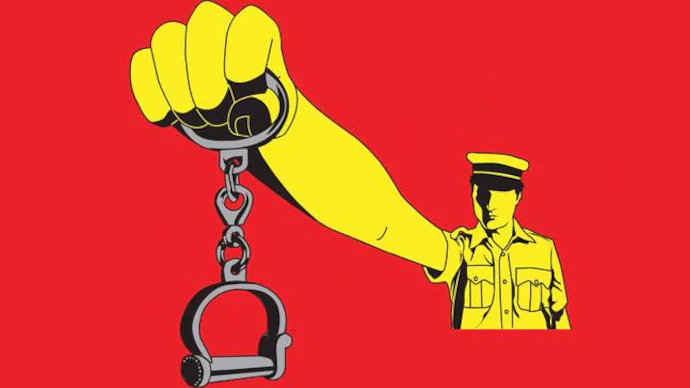
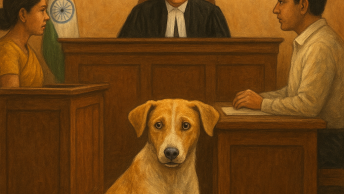
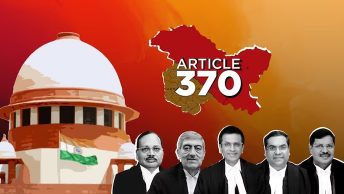
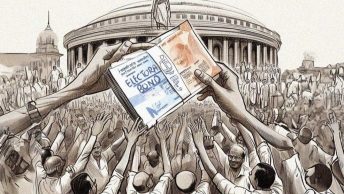

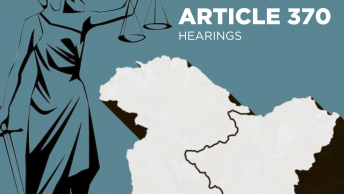
[…] UAPA is being challenged in the courts but with the courts coming out to protect the state against individual liberty, it […]